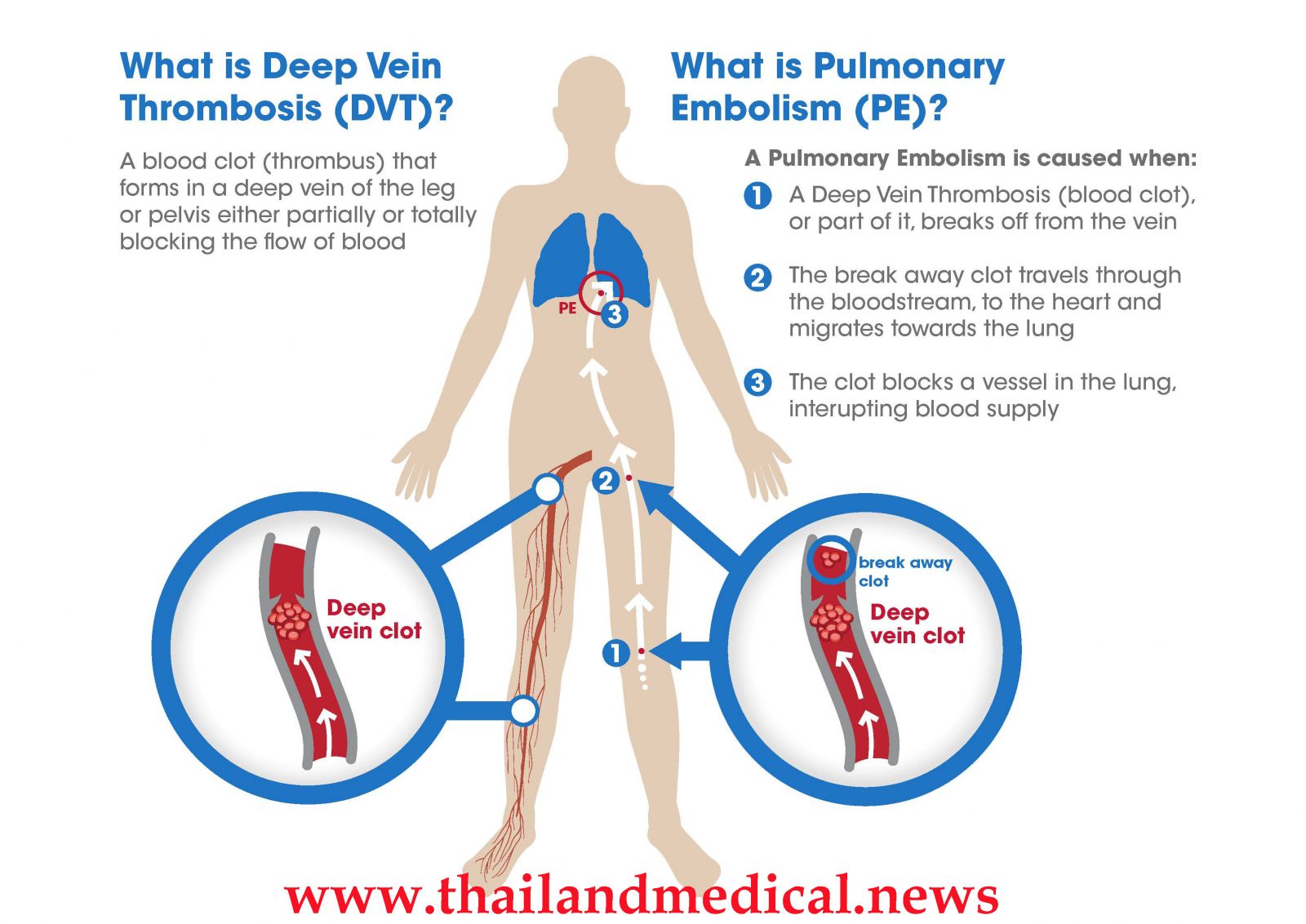Source: Thailand Medical News Nov 13, 2019 6 years, 2 months, 3 weeks, 3 days, 3 hours, 53 minutes ago
Men taking testosterone hormones will double their risk of suffering a potentially life-threatening blood clot, according to a new study by researchers from the University Of Minnesota.
The study showed that men had twice the risk for a deep vein blood clot if they'd been receiving testosterone during the previous six months, researchers reported the journal of
JAMA Internal Medicine.

The study showed that the increased risk occurred whether or not a man had the low-testosterone condition known as hypogonadism, but appeared to be more pronounced in middle-aged men than in seniors. This is a serious warning as many young men between the ages of 18 to 35 seems to be taking testosterone supplements that are sold illegally online or at various gyms.
These new findings should cause men to think twice about asking for testosterone treatments to battle normal symptoms of aging.
Dr Rob Walker, a graduate research assistant at the University of Minnesota School of Public Health, in Minneapolis and lead author told
Thailand Medical News, "If a potential patient reads this and maybe is seeking out testosterone therapy for some kind of common symptoms, like weight gain or sexual function, maybe they should seek out behavioral changes or lifestyle changes that will improve their health without a prescription."
The fad of "low-T" caused testosterone prescriptions to soar early in the 21st century, increasing more than 350% between 2001 and 2013, the study authors said in background notes.
The fad started to decline in 2014, after the U.S. Food and Drug Administration warned that testosterone therapy increases a man's risk of heart attack and stroke. However, the fad is still increasing in Asia especially among gay men, straight models and also individuals in the entertainment industry and in the gym or spa industries.
Many 'Wellness' Clinics and also 'Antiaging' Clinics are easily dispensing overpriced testosterone supplements and also testosterone injections to older males with claims that it will rejuvenate them and make them look and feel younger without taking into considerations underlying medical conditions and also warning patients of potential risks. This was seen even in a few wellness clinics in estblished hospitals in Bangkok.
Currently, more than 1 million U.S. men over 30 received testosterone therapy in 2016, the researchers noted. Evidence suggests it's still being prescribed to some who don't suffer hypogonadism, a condition in which the body isn't producing enough of the male hormone.
In order to investigate the risk of testosterone treatment, Walker and his team analyzed insurance claims for nearly 40,000 men filed between 2011 and 2017.The investigators focused on men who experienced either deep vein thrombosis or pulmonary embolisms. Pulmonary embolism occurs when a deep vein clot breaks free and travels into the lungs, blocking some or all of their blood supply.
Males without a low-testosterone condition who took the hormone had 2.3 times the risk of developing a deep vein clot within six months, the results showed. Men diagnosed with hypogonadism had 2 times the risk.
The study findings also
indicated that risk might be even greater in middle-aged men taking testosterone to battle aging, although those findings were not statistically significant. In men without hypogonadism, men under 65 almost had a tripling of risk versus men 65 years and older, whose risk was only about 1.5 times greater.
Testosterone poses this risk because it "revs up the consistency of the clotting factors in the blood." The hormone increases red blood cell count, which thickens blood and makes it flow more sluggishly. Testosterone also amps up the action of platelets, the blood cells responsible for forming clots.
The study "seems to suggest it would be safer to refrain from testosterone use in patients who do not have hypogonadism.
Thailand Medical News also points out that
previous studies have not only linked testosterone injections to heart attacks and cardiovascular issues but also to prostate cancer risks.
Reference: Walker RF, Zakai NA, MacLehose RF, et al. Association of Testosterone Therapy With Risk of Venous Thromboembolism Among Men With and Without Hypogonadism. JAMA Intern Med. Published online November 11, 2019. doi:https://doi.org/10.1001/jamainternmed.2019.5135
